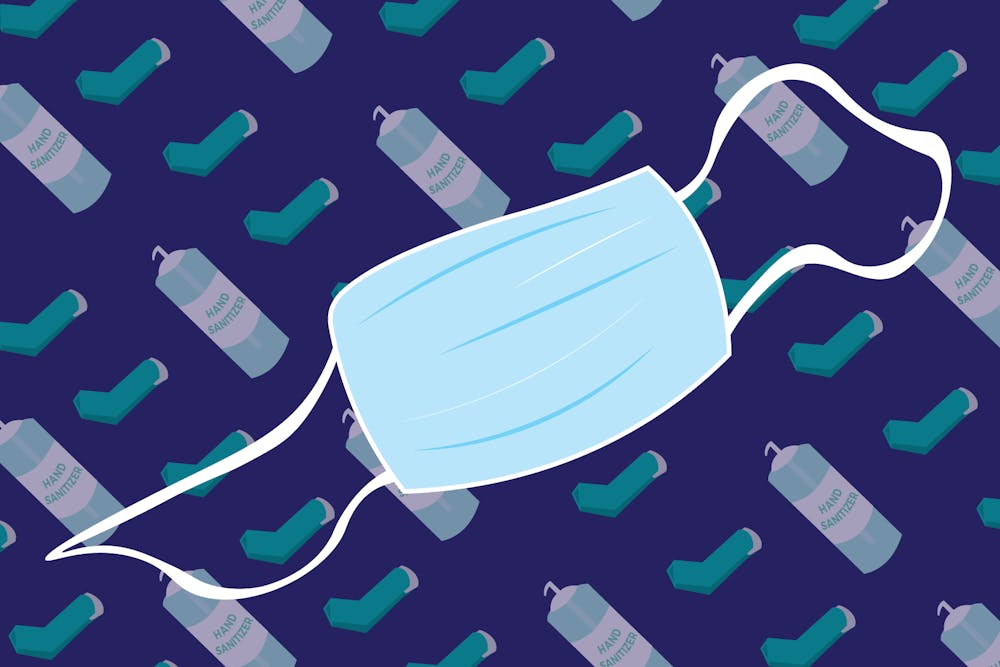Fears of the coronavirus, or COVID-19, have recently driven the majority of the world to take shelter in their homes in order to avoid the rapidly spreading virus.
Apprehension is thick in the air in Athens, students and locals only occasionally stepping out in order to get groceries or other necessities. Those doing their part to limit the spread are wary of what they touch and when they leave the house, which can be a difficult life change. However, people living with compromised immune systems have to live in even more critical conditions, further demonstrating the importance of people doing the best they can to limit the spread.
Little things like carelessly ignoring hand washing just once can rapidly spread the virus and make people with compromised immune systems even more vulnerable to coronavirus. Early childhood education major Ryan Gwin has had to become much more cautious when leaving his home because he lives with Henoch-Schönlein disease. Also known as HSP, the auto-immune disease causes inflammation and bleeding in capillaries.
Gwin, a freshman at OU, was diagnosed with the disease in 2015 and has since dealt with body pains, kidney issues and a higher susceptibility to catching the common cold, flu and viruses.
“My future plays out in the ‘safety’ of my home while I am practicing social distancing,” Gwin said in an email, highlighting that while he is still able to work and take part in classes from home, there isn’t much else he can do to protect himself. “All I can continue to do is what the CDC has been stressing from Day 1.”
Gwin is careful to practice hand washing, sanitizing and practicing social distancing, but he said the virus has impacted him psychologically as well.
“I suffer from a bit of anxiety, like everyone else who is worried about getting the disease,” Gwin said in an email. “I have to make sure I practice good hygiene and social distancing. If I don’t, I am more at risk of becoming ill. If I happen to get the virus, I am more at risk of getting harsher side effects.”
Many people with conditions that make them immunocompromised now must depend strongly on their close family and friends to keep them protected from the coronavirus. These inner circles have to be incredibly cautious in keeping clean, especially when running errands.
Jé Hooper, a graduate student at OU for interdisciplinary arts, is a survivor and advocate for living HIV positive. Hooper has lived this way for a little over 11 years and now depends on his boyfriend to take extra precautions in order to ensure good health.
Hooper described the methods the two have worked out between each other for when his boyfriend comes home from work, ranging from changing in the basement and immediately showering when getting home to wiping down grocery products and washing clothes every other day.
He also stressed the emotional pressure that the virus has placed on his relationship with his life-partner and metamour, who currently lives in New York City. Under his doctor’s order, Hooper is now unable to visit his partner for the foreseeable future, which has led to his partner considering moving.
“It has been intense,” Hooper said in an email. “However, even in our polyamorous-configuration it is nice to know that I am loved, honored and supported.”
Wearing gloves daily and constantly hand washing and using sanitizer, Hooper now works from home. Utilizing OU’s online courses and updating his Facebook Live show, Keep Liv’n, he has kept busy nonetheless, learning and creating virtually amid the chaos that is COVID-19.
Diana Ray, an Athens resident of two years, is considered immunocompromised because she is currently on maintenance chemo. Ray’s husband, the international director for the grad school at OU, was flooded with news of the virus and was able to quickly warn Ray that they had to quarantine during spring break.
While quarantining, Ray has been homeschooling her three children and working to educate them on what is happening across the globe. In order to further help them understand isolation, Ray’s children are currently reading The Diary of Anne Frank. She said that although it’s an intense example, the book brings up great discussions on our privilege during this current historical event.
Ray said although she does fear for her health, she has generally felt an overwhelming sense of gratitude and calm. She and her children have not left the house since the middle of spring break, and her husband has only left to pick up groceries and for an emergency vet visit.
Their family works hard to stay safe, quarantining groceries in their garage for three days before disinfecting them. For a visit to the vet, the Rays placed their cat for pickup at the front door in a carrier in order to limit contact. When the cat was returned, the family only handled it with gloves until its fur was cleaned.
“We have to see the beautiful silver linings that have come out of this,” Ray said in an email, remaining positive nonetheless. “People singing from balconies, neighbors dancing in the streets at safe distances to entertain those watching from windows … the unique way our social human spirit has found ways to be in touch with our loved ones in a time of isolation and fear. We will overcome, and we will look back on this historical event that we indeed overcame in a beautiful way.”






